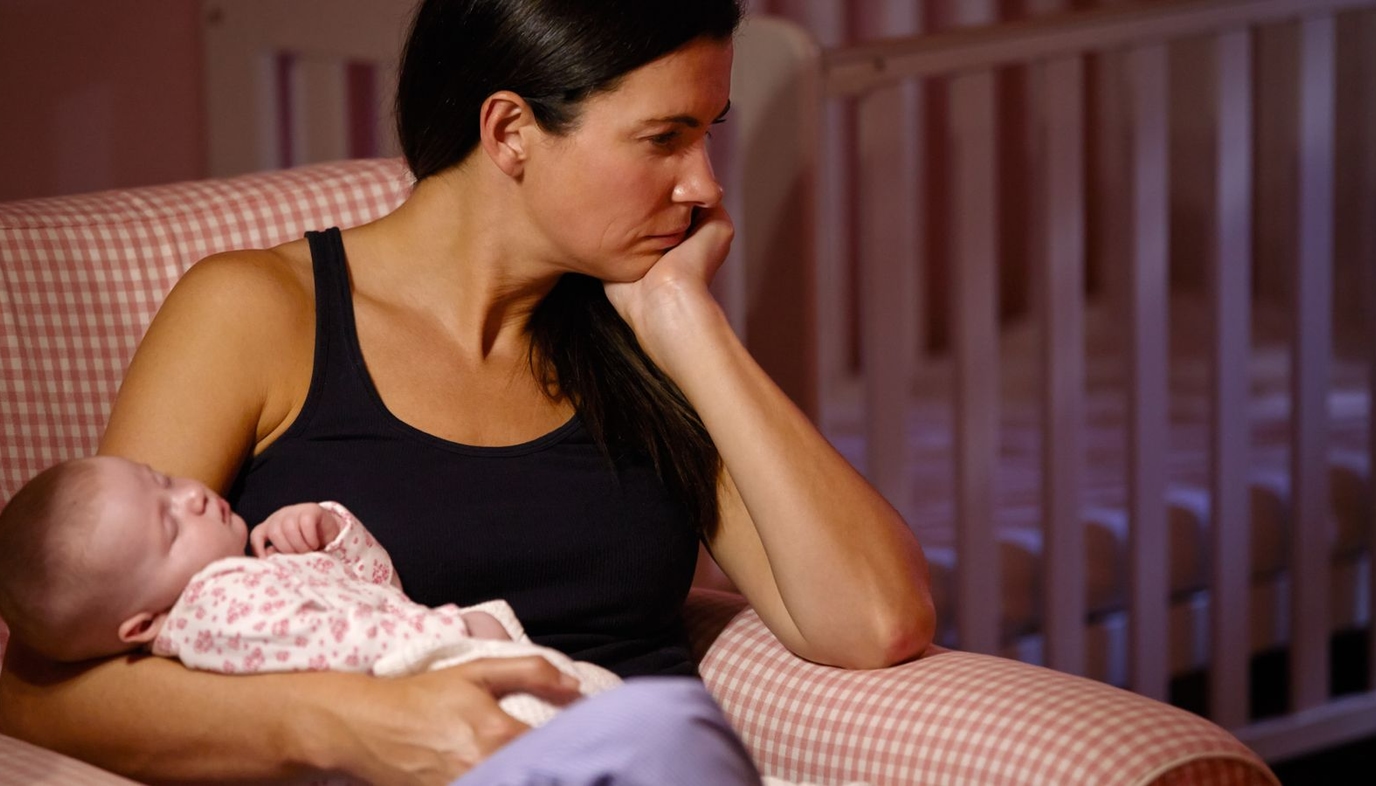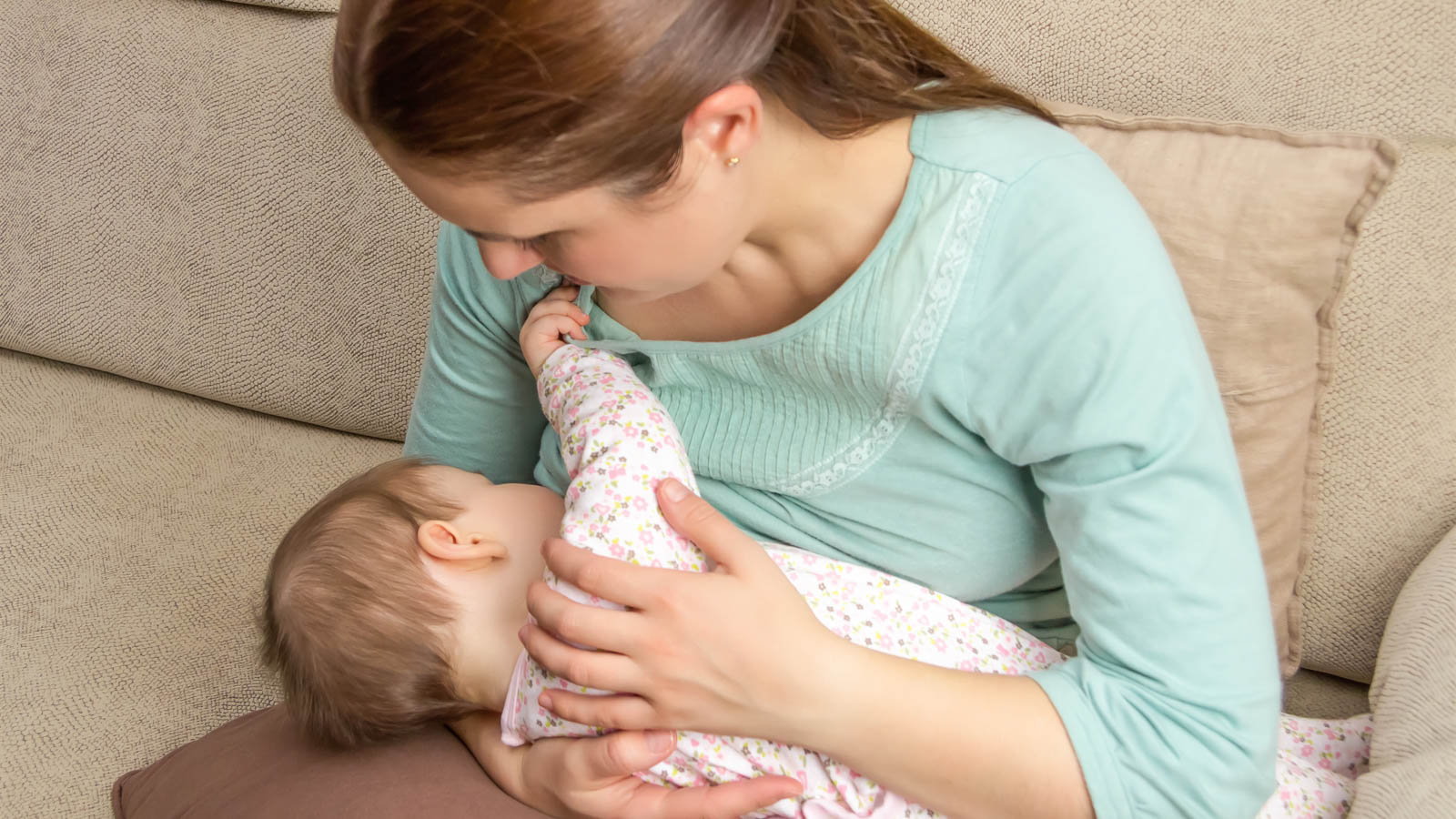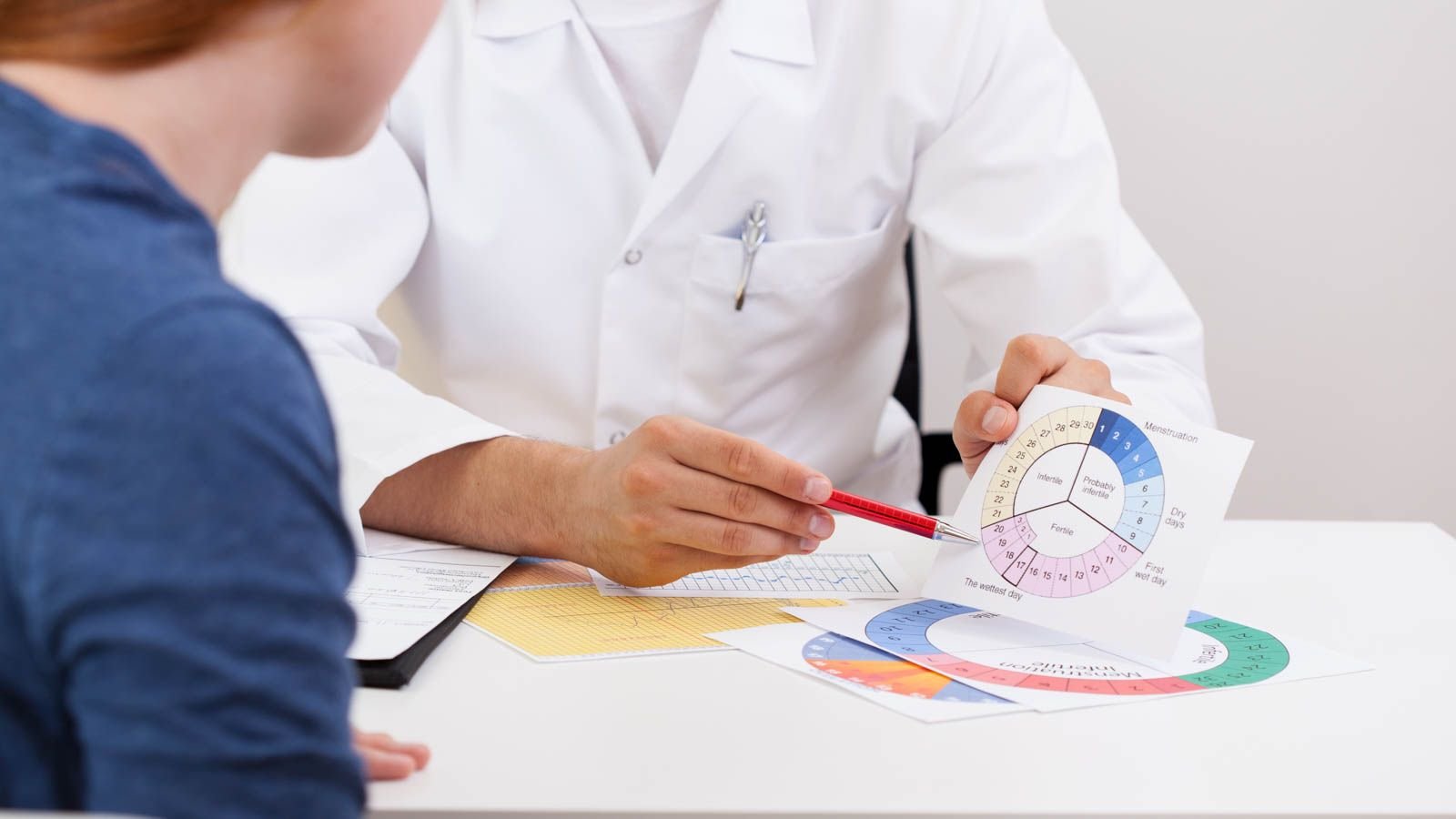
You've had a baby (congratulations!), you're settling into a schedule of sorts, you're getting to know the new member of the family, and you're learning about and getting used to your new and changing body. After postpartum bleeding (lochia) slows and then stops, all new moms begin to wonder, "When will I get my period? What will it be like? Could I get pregnant again and not know it?"
Everyone is different, just as you've heard during your entire pregnancy. So, the answers to these questions will be a bit different for everyone, but taking a few things into consideration, you can know when to reasonably expect that first period.
Bottle-Feeding and Breastfeeding
How you choose to feed your baby has the largest impact on when you will get your first period after childbirth. Moms who are bottle-feeding get their periods about two months after delivery, as prolactin and other hormones begin regulating soon after the birth. Because prolactin is associated with milk production as well as pregnancy, breastfeeding gives those women who breastfeed on demand and exclusively a few more period-free months (this is called lactational amenorrhea, and can last up to six months).

As your baby begins needing less breast milk (because of taking supplemental formula or solid foods) and is nursing less often (sleeping through the night or nursing longer at each session for fewer sessions), your prolactin levels will begin dropping and you can begin to expect a period. If you are pumping milk for your baby, be aware that this also lowers your prolactin levels, as a baby's suckling stimulates prolactin production; any pump is very different than a baby's suck. Contrary to the old wives tale that breastfeeding prevents pregnancy, you definitely can get your period while you are still breastfeeding and pumping—which, of course, also means you can get pregnant! And, since everyone is different—some women will not get their first post-childbirth period until they have completely weaned their baby.
What Will Your Period Be Like?
Since your hormones are still regulating, you can expect your period to be different for a few months—lighter, heavier, longer cycle, shorter cycle—than you are used to. Your body is still adjusting during these cycles, and your hormones are returning to normal. However, your cycle may never exactly match your pre-pregnancy cycles. You may have a "new normal." If your new normal does not seem right (heavy, irregular, or otherwise "off"), be sure to check in with your doctor. You may find that your PMS symptoms and cramps change also—they may improve, be worse, or just be different.

Fertility
Yes, you can get pregnant again before you get a postpartum period. Your period occurs about 10-14 days after ovulation, so by the time you get that first period after childbirth, you have been through one cycle. Occasionally, women do get pregnant on that first cycle, and thus do not have a period between pregnancies; this also makes it difficult to give an accurate due date and to know if the fetus is growing properly. Because of this, every woman should talk to her doctor about what birth control method would be best postpartum. Nursing moms are advised to wait until their milk supply is well-established if they want to use a hormonal method; all women must wait about one month after childbirth to use any of the hormonal methods. An IUD can be inserted about six weeks after childbirth. The lactational amenorrhea method (LAM) is considered 98 percent effective in the first six months if followed carefully (exclusively breastfeeding, on demand). Many women opt for barrier methods, as these do not affect your re-regulating hormones, milk production, or milk quality. Barrier methods are also a safe bet if you are not yet sure when you want to try for another pregnancy.
